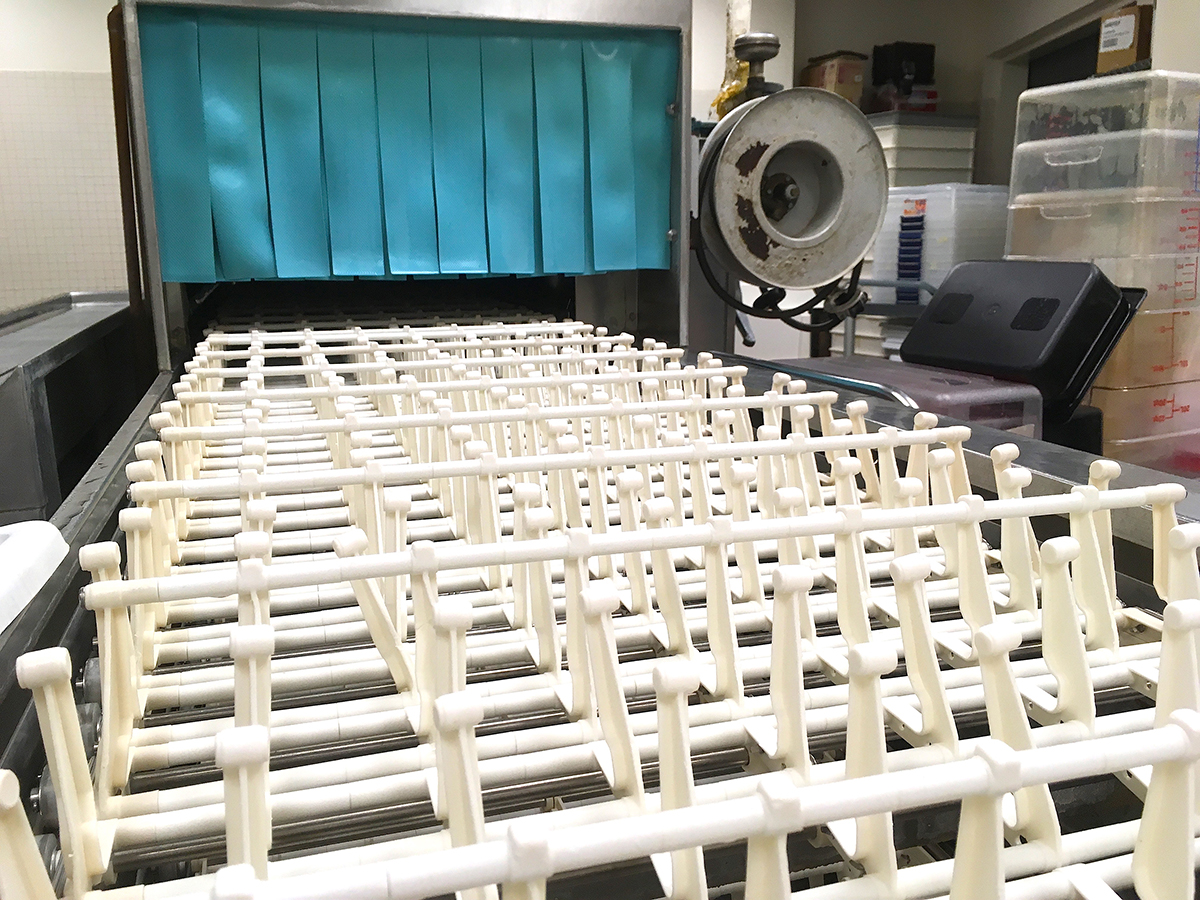In drought, Cornell Dining serves up water savings
By Blaine Friedlander

As the university remains in a second-stage drought, Cornell Dining has developed a new recipe to curtail water use. The effort is paying off, and the dining halls are saving 30,000 gallons of water each day.
“Water is precious,” said Patricia Wynn, executive director of Campus Life Enterprise Services, the area of Student and Campus Life that runs Cornell Dining and the residence halls.
When the university issued water-use restrictions July 28, Wynn made the decision to use plastic cutlery, paper plates and plastic cups in all dining halls. “It was not an easy decision to make. It’s a costly decision – from a financial and sustainability view – for us,” Wynn said. “But the water crisis required an immediate, serious response.”
Over the summer, Wynn learned coping strategies from colleges in California whose dining halls have been using disposables for about five years due to the drought out West. Wynn investigated the use of biodegradable cutlery, plates and cups and found they do not compost well.
In addition to 10 all-you-care-to-eat dining rooms, which serve about 8,800 meals daily and about 54,000 meals per week, Cornell Dining runs 11 cafes and four coffee shops. “I would like to get back to using the dishwashing machines as soon as I can, but we need sustained rain, not just a day here and a day there,” said Wynn.
According to the Cornell building water usage website, the Robert Purcell Community Center – home to the Marketplace Eatery, a large dining hall – has been using about 12,000 gallons of water daily, less than half its water budget. On West Campus, Alice Cook House recently has used 7,000 gallons daily, about 2,000 gallons less than its budgeted water allotment.

Cornell Dining is also saving water by having fresh fruits and vegetables washed by suppliers off site.
The drought has pulled the community together. Murray LaLonde, senior operations manager at North Star in Appel Commons, said parents and students were understanding about the switch to plastic cutlery and paper plates at the beginning of the semester. “They thanked us for conserving water and for taking action on the drought situation. I spoke to one parent – who lived out West – who has watched rivers in his area dry up – so he understood,” said LaLonde. “This drought in Ithaca is something we never thought we’d have to deal with, so this is a learning experience.”
Beyond saving water, sustainability is a high priority for Cornell Dining, winner of many awards including placing No. 3 in the recent Princeton Review, explained Wynn. “We are very committed to food safety, we are committed to saving energy, and we are committed to local and regional supplier objectives – with 27 percent of our current total purchases coming from local and regional places.”
Media Contact
Get Cornell news delivered right to your inbox.
Subscribe